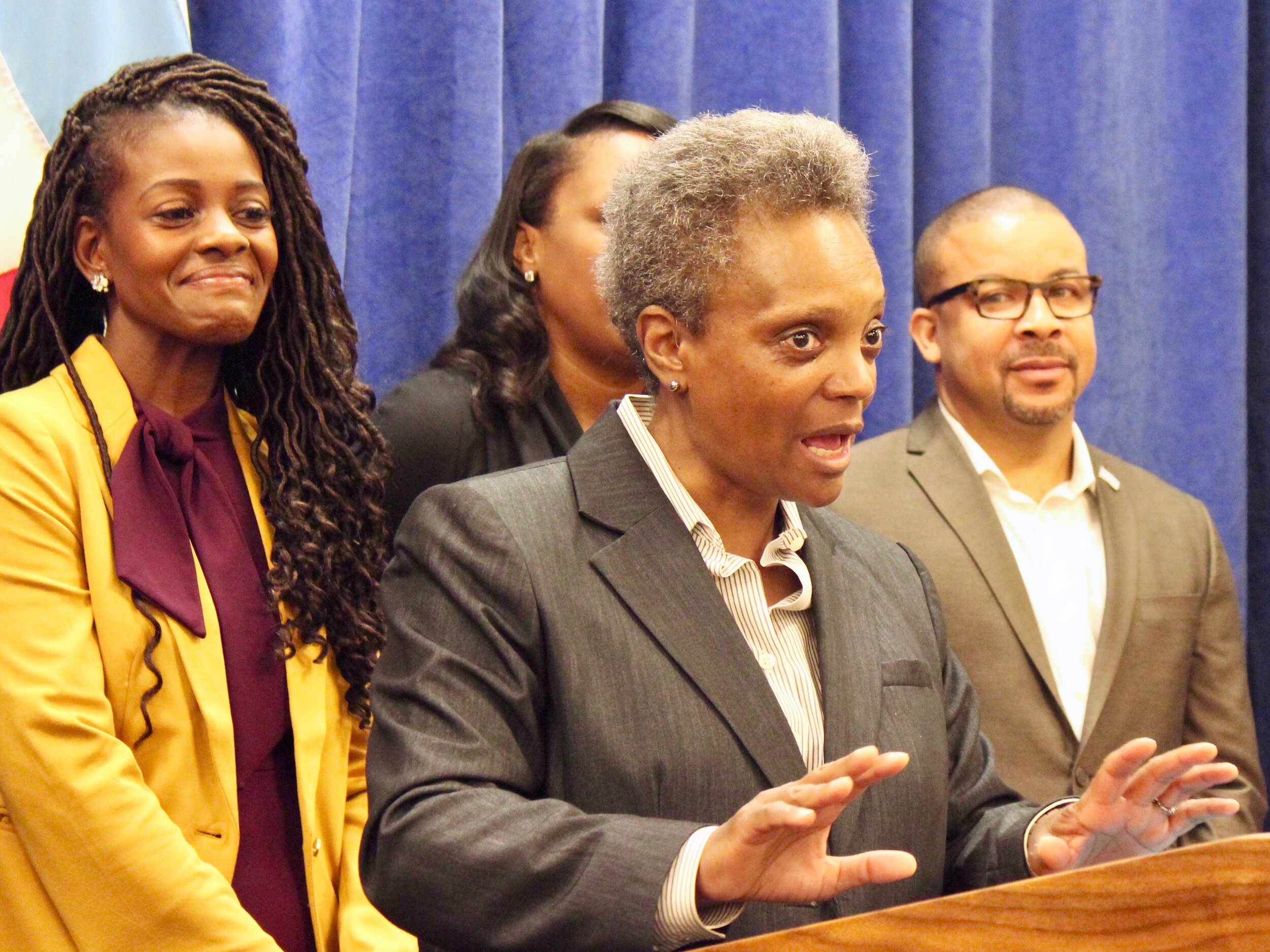Lightfoot recommits Chicago as 'Welcoming City'
Mayor, Gov. Pritzker follow through on fed requirement to formally consent to accept refugees
Mayor Lori Lightfoot has formally reaffirmed Chicago’s status as a “Welcoming City.” (One Illinois/Ted Cox)
By Ted Cox
Following through on a federal requirement, Mayor Lori Lightfoot has reaffirmed Chicago’s status as a “Welcoming City” for refugees.
On Tuesday, Christmas Eve, Lightfoot announced she had formally submitted a letter to the federal government consenting to accept and resettle refugees, as required by an executive order issued in September by President Trump.
“As a Welcoming City, Chicago is proud to submit our letter of consent to the State Department, ensuring our doors continue to remain open to refugees from around the world that are seeking a new home for themselves and a new future in our great country,” said Lightfoot in a statement on the letter.
She emphasized the timing of the letter at the holidays, saying, “It is especially fitting that we do so during this holiday season as we extend the blessings we received to those most in need. While the Trump administration’s executive order stands as another expression of their cynical vision to undermine America’s heritage as a nation of immigrants, Chicago will continue to do everything it can to fight for our families, rise to our highest values, and remain a beacon of hope for families here at home and across the globe.”
From his Muslim ban to separating immigrant families at the border with Mexico, President Trump has placed numerous obstacles in the way for aspiring immigrants and refugees. Executive Order 13888, issued in September, placed a new hurdle in the way, stating that, under the Constitution and the Immigration and Nationality Act, the U.S. government “should resettle refugees only in those jurisdictions in which both the state and local governments have consented to receive refugees under the Department of State's Reception and Placement Program.”
Gov. Pritzker took care of the state’s role in the process the week before, sending a formal letter to Secretary of State Mike Pompeo and issuing a statement saying: “As the governor of Illinois, I proudly consent to the continuation of refugee admission to our state and extend a warm welcome to refugees who have come and will be coming to Illinois.”
Both Lightfoot and Pritzker have repeatedly emphasized their support for immigration. Lightfoot has renewed restrictions on U.S. Immigration and Customs Enforcement agents in Chicago, while in his letter to Pompeo the governor pointed out how “since 1975, the state of Illinois has welcomed and resettled more than 130,000 refugees from more than 86 countries. In recent years, 1,000 to 3,000 refugees, those seeking asylum, and victims of human trafficking arrived in Illinois annually. Refugees have successfully rebuilt their lives and made positive social and economic contributions to Illinois. They have helped revitalize neighborhoods and added to the cultural vitality of our state and communities.
“As the governor of Illinois and the great-grandson of refugees, I am committed to ensuring that Illinois is a welcoming state, especially for refugees and those seeking asylum,” Pritzker added. “As survivors of persecution, refugees embody the importance of human rights, democracy, and freedom. Refugees’ resilience in the face of hardship inspires courage, hope, and perseverance. And refugees’ countless contributions undoubtedly make our states and nation stronger.”
Pritzker cited statistics showing that refugees pay more in taxes than they get back in benefits, have a higher rate of entrepreneurship than other immigrants and native U.S. citizens, and become U.S. citizens themselves at a higher rate than other immigrants.
“Illinois communities have clearly benefited from having refugees in our midst,” Pritzker said. “We coordinate with the U.S. State Department and the Office of Refugee Resettlement, as well as the nonprofit sector, to make sure that local communities are consulted and engaged in an ongoing, positive effort to welcome refugees and ensure that refugees can realize their full potential in our country.”

